
Journal Menu
► ▼ Journal Menu-
- Antibodies Home
- Aims & Scope
- Editorial Board
- Topical Advisory Panel
- Instructions for Authors
- Special Issues
- Topics
- Sections & Collections
- Article Processing Charge
- Indexing & Archiving
- Editor’s Choice Articles
- Most Cited & Viewed
- Journal Statistics
- Journal History
- Journal Awards
- Conferences
- Editorial Office
Journal Browser
► ▼ Journal BrowserNeed Help?
Announcements
4 February 2025
World Cancer Day 2025—United in Every Journey

Cancer impacts millions of lives worldwide, yet each person’s journey with the disease is uniquely their own. World Cancer Day reminds us that while the disease impacts individuals differently, our shared strength, innovation, and focus on holistic care bring us closer to a future where cancer no longer dictates lives. Every experience, challenge, and success story contribute to the broader fight against cancer, demonstrating the resilience and hope that unite us all. As we continue to make strides through innovative research, treatment advancements, and global collaboration, it is essential to recognize both the diversity of stories and our common goal of overcoming cancer together.
In observance of this day, we invite you to explore the following resources that delve into the field of cancer and the cutting-edge advancements shaping its care. By prioritizing people-centered treatment where patients’ voices and needs guide care, we can ensure personalized attention for all. It is our hope to foster a deeper understanding of the impact of cancer and encourage meaningful action to support patients, caregivers, and researchers in their pursuit of a world free from cancer’s hold. Together, we can inspire action and work toward a cancer-free future.
 |
|
Biology & Life Sciences |
Medicine & Pharmacology |
Chemistry & Material Sciences Public Health & Healthcare Engineering Society |
 |
“Rare Variants of Dermatofibrosarcoma Protuberans: Clinical, Histologic, and Molecular Features and Diagnostic Pitfalls”
by Celestine M. Trinidad, Sintawat Wangsiricharoen, Victor G. Prieto and Phyu P. Aung
Dermatopathology 2023, 10(1), 54–62; https://doi.org/10.3390/dermatopathology10010008
“Nitrogen Containing Heterocycles as Anticancer Agents: A Medicinal Chemistry Perspective”
by Adarsh Kumar, Ankit Kumar Singh, Harshwardhan Singh, Veena Vijayan, Deepak Kumar, Jashwanth Naik, Suresh Thareja, Jagat Pal Yadav, Prateek Pathak, Maria Grishina et al.
Pharmaceuticals 2023, 16(2), 299; https://doi.org/10.3390/ph16020299
“Artificial Intelligence in Brain Tumor Imaging: A Step toward Personalized Medicine”
by Maurizio Cè, Giovanni Irmici, Chiara Foschini, Giulia Maria Danesini, Lydia Viviana Falsitta, Maria Lina Serio, Andrea Fontana, Carlo Martinenghi, Giancarlo Oliva and Michaela Cellina
Curr. Oncol. 2023, 30(3), 2673–2701; https://doi.org/10.3390/curroncol30030203
“Triple Negative Breast Cancer Treatment Options and Limitations: Future Outlook”
by Onyinyechi Obidiro, Gantumur Battogtokh and Emmanuel O. Akala
Pharmaceutics 2023, 15(7), 1796; https://doi.org/10.3390/pharmaceutics15071796
“Biomarkers in Breast Cancer: An Old Story with a New End”
by Lyvia Neves Rebello Alves, Débora Dummer Meira, Luiza Poppe Merigueti, Matheus Correia Casotti, Diego do Prado Ventorim, Jucimara Ferreira Figueiredo Almeida, Valdemir Pereira de Sousa, Marllon Cindra Sant’Ana, Rahna Gonçalves Coutinho da Cruz, Luana Santos Louro et al.
Genes 2023, 14(7), 1364; https://doi.org/10.3390/genes14071364
“Could Microbiome Be the Common Co-Denominator between Type 2 Diabetes and Pancreatic Cancer?”
by Marin Golčić and Andrej Belančić
Diabetology 2023, 4(4), 553–559; https://doi.org/10.3390/diabetology4040049
“Targeting Solute Carrier Transporters (SLCs) as a Therapeutic Target in Different Cancers”
by Ravi Bharadwaj, Swati Jaiswal, Erandi E. Velarde de la Cruz and Ritesh P. Thakare
Diseases 2024, 12(3), 63; https://doi.org/10.3390/diseases12030063
“Significance of TP53, CDKN2A, SMAD4 and KRAS in Pancreatic Cancer”
by Dimitrios Stefanoudakis, Maximos Frountzas, Dimitrios Schizas, Nikolaos V. Michalopoulos, Alexandra Drakaki and Konstantinos G. Toutouzas
Curr. Issues Mol. Biol. 2024, 46(4), 2827–2844; https://doi.org/10.3390/cimb46040177
“Metformin: From Diabetes to Cancer—Unveiling Molecular Mechanisms and Therapeutic Strategies”
by Emilia Amengual-Cladera, Pere Miquel Morla-Barcelo, Andrea Morán-Costoya, Jorge Sastre-Serra, Daniel Gabriel Pons, Adamo Valle, Pilar Roca and Mercedes Nadal-Serrano
Biology 2024, 13(5), 302; https://doi.org/10.3390/biology13050302
“Immune Checkpoint Inhibitors: Fundamental Mechanisms, Current Status and Future Directions”
by Abdullah Younis and John Gribben
Immuno 2024, 4(3), 186–210; https://doi.org/10.3390/immuno4030013
“Breast Cancer Screening among African Immigrants in the United States: An Integrative Review of Barriers, Facilitators, and Interventions”
by Julian I. Rauch, Joseph Daniels, Alyssa Robillard and Rodney P. Joseph
Int. J. Environ. Res. Public Health 2024, 21(8), 1004; https://doi.org/10.3390/ijerph21081004
“Predicting Leukoplakia and Oral Squamous Cell Carcinoma Using Interpretable Machine Learning: A Retrospective Analysis”
by Salem Shamsul Alam, Saif Ahmed, Taseef Hasan Farook and James Dudley
Oral 2024, 4(3), 386–404; https://doi.org/10.3390/oral4030032
 |
 |
 |
 |
 |
21 January 2025
MDPI’s Newly Launched Journals in December 2024
Nine new journals covering multiple subjects launched their inaugural issues in December 2024. We are excited to be able to share with you the newest research rooted in the value of open access.
We would like to express our deepest appreciation to all of the Editorial Board Members, and each journal will ensure its high-quality output by using excellent editorial and rigorous peer-review processes, to ensure that the articles achieve high impact and visibility.
Please feel free to browse and discover more about the new journals below.
| Journal | Founding Editor-in-Chief | Journal Topics (Selected) |
|
|
Prof. Dr. Zhaoyang Dong |
energy storage technologies; energy storage system management; energy storage applications; strategies in renewable energy generation grid integration; distributed storage systems; economics and markets for energy storage View journal scope | Submit an article |
| Prof. Dr. Yang-Hui He 1. London Institute for Mathematical Sciences, Royal Institution, UK 2. University of Oxford, UK Editorial | View inaugural issue |
Euclidean geometry; differential geometry; algebraic geometry; complex geometry; discrete geometry; computational geometry; geometric group theory; convex geometry View journal scope | Submit an article |
|
| Dr. Michel Planat Université de Franche-Comté, France Editorial | View inaugural issue |
differential topology; algebraic topology; manifold topology; homology theory; low-dimensional topology; fuzzy sets View journal scope | Submit an article |
|
| Prof. Dr. Rashid Al Abri 1. Sultan Qaboos University, Oman 2. Oman Medical Association, Oman Editorial | View inaugural issue |
clinical practices as well as research and innovation in medical education, risk management in healthcare, and patient safety View journal scope | Submit an article |
|
| Prof. Dr. Ecevit Bilgili* New Jersey Institute of Technology, USA *Prof. Dr. Ecevit Bilgili passed away before the completion of the inaugural issue. His dedication and vision for JPBI will always be remembered and serve as a guiding inspiration. Editorial | View inaugural issue |
early drug discovery and development; product characterization and pre-clinical testing; drug delivery systems and drug design; active pharmaceutical ingredient (API) production View journal scope | Submit an article |
|
| Dr. Weiyong Liu Huazhong University of Science and Technology, China Editorial | View inaugural issue |
theories, methodologies, technologies, and applications in the fields of laboratory medicine and clinical chemistry View journal scope | Submit an article |
|
| Prof. Dr. Manuel Pedro Rodríguez Bolívar University of Granada, Spain Editorial | View inaugural issue |
scientometrics; informetrics; bibliometrics; altmetrics; webometrics; research evaluation View journal scope | Submit an article |
|
| Prof. Dr. Fei Fan Wuhan University, Wuhan 430072, China Editorial | View inaugural issue |
regional growth theory and methods; regional system modeling and optimization; regional development policy; regional spatial evolution; environmental policy and instrument choice View journal scope | Submit an article |
|
| Dr. Kevin Cianfaglione Université Catholique de Lille, France Editorial | View inaugural issue |
wild species and their habitats; wild environments and biodiversity; natural environment management; wild land preservation View journal scope | Submit an article |
We wish to thank everyone who has supported the development of open access publishing. You are welcome to send an application here, or contact the New Journal Committee (newjournal-committee@mdpi.com) if you would like to create more new journals.
17 January 2025
Meet Us at the 145th Annual Meeting of the Pharmaceutical Society of Japan, 26–29 March 2025, Fukuoka, Japan

Conference: The 145th Annual Meeting of the Pharmaceutical Society of Japan
Date: 26–29 March 2025
Location: Fukuoka, Japan
MDPI will be attending the 145th Annual Meeting of the Pharmaceutical Society of Japan as an exhibitor, which will be held from 26 to 29 March 2025, and we welcome researchers from diverse backgrounds to visit and share their latest ideas with us.
The conference is organized by the Pharmaceutical Society of Japan and chaired by Prof. Takashi Ohshima from the Graduate School of Pharmaceutical Sciences, Kyushu University. The theme is Promoting the Ecosystem in Pharmaceutical Sciences: Future Innovation through Cross-disciplinary Collaboration. This conference will bring together around 5,000 scientists and students to share research advances covering a wide range of scientific topics. The sessions include, but are not limited to, the following: 1) Pharmaceutical Chemistry; 2) Pharmaceutical Physics; 3) Pharmaceutical Biology; 4) Pharmaceutical Health Science and Environmental Toxicology; 5) Pharmaceutical Health Care and Sciences; and 6) Others.
The following MDPI journals will be represented at the conference:
- Biomedicines
- Pharmaceuticals
- Pharmaceutics
- Antibiotics
- Antibodies
- Antioxidants
- CIMB
- Diseases
- Future Pharmacology
- IJERPH
- IJMS
- IJTM
- JNT
- JPM
- Marine Drugs
- Medicina
- Medicines
- Metabolites
- Psychoactives
- Sci. Pharm
- Sclerosis
If you are planning to attend the above conference, please do not hesitate to start an online conversation with us. Our delegates look forward to meeting you in person at the booth and answering any questions that you may have. For more information about the conference, please visit the following website: https://pub.confit.atlas.jp/en/event/pharm145.
7 January 2025
MDPI INSIGHTS: The CEO's Letter #19 - Reflecting on 2024, Society Journals, OA Germany

Welcome to the MDPI Insights: The CEO's Letter.
In these monthly letters, I will showcase two key aspects of our work at MDPI: our commitment to empowering researchers and our determination to facilitating open scientific exchange.
Opening Thoughts

Reflecting on 2024: Celebrating Our Progress and People
As we reflect on the year gone by, I’m proud and thankful for what we’ve accomplished together. This has been a year of growth, learning, and resilience, all of which have shaped MDPI’s journey. I would like to thank each of our employees for their dedication, hard work, and commitment to advancing open access (OA) publishing.
Our growth is evident: from about 5,900 colleagues at the end of 2023 to over 6,650 today, our global MDPI community continues to expand. We expanded our global operations with a new office in Seoul, South Korea, and celebrated a record-breaking year with 60 MDPI journals newly indexed in the Web of Science and 37 MDPI journals accepted into Scopus. As at 30 December, 2024, we publish 457 journals, of which 448 are peer-reviewed and 9 dedicated to academic conference outputs. Of these, 306 are indexed in Scopus, 298 in the Web of Science, and 90 in PubMed.
Looking for a new role in 2025? We have a variety of roles currently open!
Yet, growth never comes without its challenges. This year, we faced setbacks, including the removal of the Journal of Personalized Medicine from the Web of Science due to content relevance concerns. Our editorial and research integrity teams are actively addressing these issues, and we aim to reapply for indexation in December 2026. On another front, the decision by JUFO, The Finnish Publication Forum, to downgrade many MDPI journals presented a challenge. However, we are engaging with the Finnish research community and our editorial boards to provide scientific data supporting a reevaluation of MDPI journals in alignment with Finland’s national open access policies.
These examples remind us that challenges are part of our journey. What defines us is how we respond, by learning, adapting, and improving our practices and operations.
On the partnerships front, we achieved a landmark national open access agreement with over 100 German universities, effective 1 January 2025, bringing our total of Institutional Open Access Program (IOAP) partners to over 950. These achievements reflect not just our ambition but also the trust placed in MDPI by our collaborators worldwide.
Amidst growth and change, one constant remains: the people of MDPI. This year, I had the privilege of representing MDPI at important meetings and conferences from Beijing to Krakow, while visiting many of our offices, from Tokyo and Cluj to Manchester and Toronto. The highlight of my year has been meeting and connecting with so many of you.
“MDPI thrives because of community and collaboration”
When asked what makes MDPI a great place to work, my answer is simple: It’s the people. Our authors frequently praise the support and professionalism of our editorial staff. That same care extends inward, reflected in the friendships and collaborations we regularly nurture with our colleagues. MDPI thrives because of the community and collaboration that drives us forward.
As the African proverb states, “If you want to go fast, go alone. If you want to go far, go together.” I believe MDPI embodies both, being speedy in our daily operations and united in our purpose of promoting open access publishing.
Looking ahead to 2025, let us continue building a culture of care and support for one another, take pride in our work, and strive to improve all that we do. Thank you for making 2024 a special year, and I look forward to what we can achieve together in 2025.
PS: I look forward to sharing more about our people and the achievements of the past year in the 2024 Annual Report.
Impactful Research

685 MDPI Editors Named Highly Cited Researchers in 2024
I’m excited to celebrate the achievements of 685 Editorial Board Members (EBMs) from our journals, representing 39 countries and territories, who have been named Highly Cited Researchers for 2024 by Clarivate. This prestigious recognition highlights their scientific contributions, which transcend academic boundaries to drive progress in global knowledge, sustainability, security, and well-being.
Here, you’ll find the list of MDPI’s EBMs who have been recognized this year.
Clarivate’s annual Highly Cited Researcher™ list identifies the most influential scientists of the past decade – those whose work has made a profound and far-reaching impact across numerous scientific and social science disciplines. To be included on this list is no small feat. These researchers’ impactful papers rank among the top 1% by citations in one or more of the 21 fields analyzed within the “Essential Science Indicators,” positioning them as leaders in their domains.
As Clarivate notes, “Highly Cited Researchers have demonstrated significant and broad influence in their field(s) of research.” In 2024, a total of 6,886 Highly Cited Researcher designations were awarded to 6,636 individuals globally.
I extend my congratulations to all of MDPI’s EBMs who have achieved this milestone. Their dedication and excellence inspire us all and exemplify the high standards we uphold as a publisher. Congratulations to each of them for this incredible accomplishment and for their ongoing contributions to advancing knowledge in their fields.
Inside MDPI

How MDPI / Open Access Supports Societies
MDPI actively supports societies through the launch of new journals, the acquisition of established journals, and the transfer of society journals from other publishers. You can submit your proposal here.
Over the past 13 years, we have collaborated with over 190 learned societies and organizations. These partnerships range from affiliations with one or more of our journals to publishing journals on behalf of our partners.
Learn about how MDPI / Open Access Supports Societies.
In this section I highlight our Societies team, whose responsibilities include establishing new OA journals on behalf of societies and institutions, publishing an existing OA journal with MDPI or transitioning a subscription journal to an OA model, and establishing affiliations between societies and MDPI journals.
If you would like to learn more about these services, please see the Societies website.
The Societies team is led by Dr. Carla Aloè, Head of Societies and Acquisition, and her Deputy Manager, Dr. Clàudia Aunós. MDPI collaborates with a wide range of societies through various partnerships. For a complete list of collaborating societies and society journals, please visit the Societies website.

How long have you been at MDPI, and what was your first role?
I joined MDPI in September 2020 as an Associate Publisher and Scientific Officer, overseeing the Arts, Humanities, and Social Science journals. In July 2022, I took on the oversight of the Society and Acquisition team.
Do you think that perceptions of Open Access are generally accurate?
Far from it: there are in fact many misconceptions surrounding the way Open Access works and the benefits it has to offer. A common misconception is that OA journals are poor quality, which is entirely untrue. Many of our journals are included in major indexing databases, and all of them are endorsed by prominent associations and committees such as the Committee on Publication Ethics (COPE), the International Association of Scientific, Technical, and Medical Publishers (STM), and the Open Access Scholarly Publication Association (OASPA). We uphold a rigorous peer-review process, adhere to strict ethical standards, and rely on high-profile editorial boards.

How long have you been at MDPI, and what was your first role?
I’ve been at MDPI for almost seven years now. I started as an Assistant Editor but was quickly promoted to work with societies.
What is the most common question you get asked about the services that the Societies team provides?
For societies with a standard number of members (less than 500), the most common inquiry is about how much the publishing services we offer cost. One of the great things about our publishing services is that they are free of any burden cost to the society, regardless of the type of non-profit organization.
For bigger non-profit organizations, it is more about what benefits they can get for their members and ensuring that their journals are in good hands.
Either way, the goal is the same: to listen to the demands of the market, be flexible, and help our partners achieve healthy and positive development of their journals.
Read more:
Coming Together for Science

2024 MDPI Conference Summary
Throughout 2024, the MDPI Conference Team connected with scientific communities by organizing nine in-person events and 26 virtual conferences. In order to support the need for our growing events, we expanded this team to a total of 37 people across all offices, including 18 members in Asia-Pacific and 20 in the EU and North America.
The nine large-scale in-person conferences organized brought together leading minds across diverse disciplines, including our conferences on Viruses, Molecules, Polymers, Materials, Non-Coding RNA, Pharmaceuticals, and Sensors. These events strengthened synergies with the scientific community, actively promoting our journals and the latest research published within their respective fields. These achievements highlight our Conference Team’s dedication to creating meaningful and memorable events in the academic field.
2024 Event Highlights
Viruses 2024, the 5th edition of the conference series, hosted influential keynote speeches from Nobel Prize laureate Dr. Charles M. Rice and ‘Distinguished Senior Virologist’ Prof. Luis Enjuanes. The event attracted 240 attendees from around the globe. With 47 talks and nearly 130 poster presentations, the conference explored the latest developments in viral pathogenesis and immune responses across six engaging sessions.
Molecules 2024, the fourth edition of this conference series, highlighted the impact of emerging drug modalities on drug discovery. The event brought together over 100 attendees from 22 countries and featured more than 80 submissions organized into six sessions. The program included talks by 12 invited speakers from Europe, Asia and the United States. An impressive 97% of attendees rated the conference as ‘Excellent’ or ‘Good.’
Polymers 2024, attracted over 300 attendees from 22 countries and featured 259 accepted abstracts. Focusing on green polymer chemistry and the use of bioresources, the conference highlighted advancements in the synthesis of biobased and biodegradable polymers. Engaging lectures by three keynote speakers and 12 invited speakers, coupled with dynamic discussions, led 94% of attendees to rate the conference as ‘Excellent’ or ‘Good.’
A high-profile summit in Toronto was organized by the team, which expanded our global reach and showcased our capacity to deliver impactful events in our different offices. Sixteen EiC and seven EBMs joined our event, and with a 100% rate of Excellent/Good, over 90% of them said they are likely to attend our next edition.
The 1st International Conference on AI Sensors & The 10th International Symposium on Sensor Science successfully gathered about 400 participants onsite. Three hundred and fifty-five abstracts were accepted, with 772 authors from 28 countries. Across the four-day program, there were 296 talks delivered and 66 posters displayed.
The 2nd Sustainable Publishing Forum was successfully held in Beijing, China, with around 120 attendees from local publishers, editorial staff from local university presses, librarians, etc. The event is focused on promoting open science, maintaining research integrity and fulfilling social responsibility.
ICM 2024, the 5th International Conference on Materials, brought together scientists, researchers and industry leaders to explore advancements in materials characterization, processing and manufacturing. Topics ranged from nanotechnology and biomaterials to energy materials and AI-driven research. With 62 attendees from 26 different countries, the program featured 34 talks and 18 posters, fostering collaboration and innovation over 2.5 days.
The second edition of ncRNA 2024 welcomed 104 attendees from 30 countries, 71% of them being women. Two keynote speakers, Prof. Ling-Ling Chen and Prof. Mauro Giacca, shared insights drawn from over 10 years of experience. Prof. Giacca's groundbreaking work promises advances in curative therapies for heart failure, while Prof. Chen’s team continues to lead the development of the ncRNA field. High participant engagement generated valuable topics for future editions, and 96% of attendees rated the conference as ‘Excellent’ or ‘Good’.
Pharmaceuticals 2024, with its eight sessions, covered the newest technologies and the research areas of medicinal chemistry, natural products, organic synthesis, radiopharmaceuticals, pharmacology, toxicology, and biomolecular and glycosciences, among others. The conference featured three plenary and eight invited speakers, comprising esteemed scholars from eight different countries of Europe, and welcomed 64 participants from 28 different countries. Ninety-one percent of the attendees rated the conference as ‘Excellent’ or ‘Good’, highlighting the outstanding organzation of the event.
In 2024, we organized 26 virtual events with an average submission number of 158 abstracts per event, and an average registration number of 491 per event. Compared with the last edition, we saw a 42.2% growth of accepted abstract submissions.
The year 2024 marked a change in the strategy of our conference team, prioritizing the improvement of the communication and collaboration within our European and Asia-Pacific teams and creating stronger teamwork to elevate the quality and impact of MDPI events.
Scheduled Events in 2025
- Smart Sustainable Cities 2025: Pioneering Novel Frontiers for Green Urban Living: 5–7 Mar 2025, online.
- International Conference on Advanced Remote Sensing (ICARS 2025): 26–28 Mar 2025, Barcelona, Spain.
- Plants 2025: From Seeds to Food Security: 31 Mar–2 Apr 2025, Barcelona, Spain.
- Symmetry 2025 - The 5th International Conference on Symmetry: 16–19 May 2025, Hangzhou, China.
- The 2nd International Conference on AI Sensors and Transducers: 29 Jul–3 Aug 2025, Bangkok, Thailand.
- The 5th International Symposium on Frontiers in Molecular Science: 26–29 Aug 2025, Kyoto, Japan.
- The 11th World Sustainability Forum: Sustainable and Resilient Cities: 2–3 Oct 2025, Barcelona, Spain.
- The Cancers 2025 and Sensors 2025 websites will soon be made public.
Closing Thoughts

Over 100 German Universities Partner with MDPI in New National Agreement
I am pleased to share some exciting end-of-year news: MDPI has reached a major milestone by signing a publishing agreement with over 100 German universities and research institutions! Negotiated by ZB MED - Informationszentrum Lebenswissenschaften, the agreement came into effect on 1 January 2025 and will run until the end of 2026.
This new cooperation aims to make scientific Gold Open Access publishing more affordable and less administratively burdensome for researchers in Germany.
Learn more, here.

“Thank you to everyone who contributed to making this agreement a reality.”
Why is this important?

Germany is a global leader in academic research and publishing, ranking fifth in total MDPI publication volume.
This agreement reflects our growing influence and leadership in open access publishing.
Partnering with more than 100 institutions highlights MDPI’s reputation as a trusted publishing partner for the academic community.
As Peter Roth, MDPI Head of Publishing, noted:
“MDPI can look back on over a decade of successful partnerships with German research institutions. This agreement marks another milestone in our collaboration with the German scientific community.”
Adrian Stefan Zamfir, Institutional Partnership Manager for the DACH region, added:
“We are delighted that this agreement will give even more researchers in Germany access to our tried-and-tested and reliable publication platform”
Thank you to everyone who contributed to making this agreement a reality. This milestone reinforces MDPI as a trusted leader in advancing open access and supporting researchers worldwide.
Chief Executive Officer
MDPI AG
17 December 2024
Over 100 German Universities Partner with MDPI in New National Agreement

More than 100 German universities and research institutions have entered into a national agreement with MDPI. The publication agreement negotiated by ZB MED comes into effect on 1 January 2025 and is valid until the end of 2026. Joining the consortium is still possible until the beginning of 2025. We are delighted by the high level of interest this agreement has already garnered, reflecting the strong demand for accessible and cost-effective open access publishing solutions among German research institutions.
This new cooperation aims to make scientific gold open access publishing more affordable and less administratively burdensome for researchers in Germany. The agreement includes substantial discounts on article processing charges (APCs) for corresponding authors from participating institutions. It offers flexible payment options, including centralized invoicing or individual payment of fees by researchers or their institutions. Additionally, the agreement features a flat-fee model that enables institutions to precisely plan expenses and optimize their library budgets.
"MDPI can look back on over a decade of successful partnerships with German research institutions," says Peter Roth, MDPI Head of Publishing. "The new agreement marks another milestone in the long-standing co-operation between MDPI and the German scientific community. It emphasizes our commitment to developing up-to-date and inventive solutions for the diverse needs of scientific institutions to promote open research for the benefit of researchers."
Petra Labriga, Head of Strategic License Management at ZB MED, highlighted the agreement's significance: "As one of the world's leading Gold OA publishers, MDPI plays a central role in the German publishing landscape. We are particularly pleased that we were able to achieve considerable potential cost savings for scientific institutions and their authors at a national level through our negotiations."
The partnership reflects a common goal of advancing the idea of open access and supporting researchers in making their scientific excellence internationally visible.
"We would like to thank the ZB MED consortium team for their excellent collaboration," added Adrian Stefan Zamfir, MDPI Institutional Partnership Manager for the DACH region. "We are delighted that this agreement will give even more researchers in Germany access to our tried-and-tested and reliable publication platform."

Franziska Fischer (right), Commercial Director at ZB MED, an Peter Roth (left), Head of Publishing at MDPI, celebrate the signing of the new national open access agreement between MDPI and the ZB MED Consortium.

More Information
Contact
- ZB MED: Team Konsortiallizenzen (konsortiallizenzen@zbmed.de) - Website
MDPI: Adrian Stefan Zamfir, Institutional Partnership Manager (zamfir@mdpi.com)
About ZB MED
ZB MED - Information Centre for Life Sciences is an infrastructure and research centre for life science information and data. Its aim is to support and strengthen research for people and the environment: from medicine to biodiversity and environmental protection.
The work of ZB MED is orientated towards the strategic guidelines:
- Research + Networking: We conduct research together with the regionally, nationally, European and globally networked research community.
- Data science: We enable data analyses and generate new knowledge through research.
- Access to information: We provide sustainable access to information, literature and data as a central information infrastructure.
- Open + FAIR: We promote open and reproducible science in line with open science and FAIR principles.
- Knowledge and skills transfer: We actively impart knowledge, competences and skills.
More information at www.zbmed.de.
About MDPI
Headquartered in Basel, Switzerland, MDPI is one of the world's leading open access publishers with a current portfolio of more than 440 journals in all scientific disciplines. MDPI‘s goal is to advance open science worldwide through greater transparency, efficiency and collaboration. To date, more than 3.7 million researchers have published their results in MDPI journals. The editorial process is overseen by a large network of dedicated reviewers and editors and supported by more than 6500 MDPI employees. MDPI currently works with over 800 academic institutions and 180 scientific societies worldwide, which benefit from a wide range of MDPI services and products.
17 December 2024
Article Layout and Template Revised for Future Volumes
We are pleased to announce a series of updates to our template, aimed at improving the readability and overall aesthetics of our publications. These changes have been meticulously designed to enhance the user experience and ensure consistency across all our publications. The updated template will be available for download from the Instructions for Authors page.
The following updates will be applied to articles published in the 2025 volumes, starting on 24 December 2024:
- Main text: The line spacing has been increased to improve the readability of publications;
- Header and footer: The link to the journal website will be removed, as a hyperlink has been integrated into the journal logo. Additionally, the DOI link will be moved from the left-hand side to the right-hand side, and both the header and footer will be slightly raised to achieve a better balance;
- Left information bar: The information provided here has been rearranged for better organization; the CC-BY logo will be removed;
- Font size: The font size used for the abstract, keywords, and first-level headings will be increased.
Furthermore, MDPI journals will continue to use article numbers. This approach enables us to maintain a rapid and efficient production process by being able to define pagination as soon as a paper is accepted.
We hope that the new version of the template will provide users with a better experience and make the process more convenient.
Please contact production@mdpi.com if you have any questions or suggestions.
6 December 2024
MDPI INSIGHTS: The CEO's Letter #18 - MDPI UK, Basel Job Fair, CETEF'24

Welcome to the MDPI Insights: The CEO's Letter.
In these monthly letters, I will showcase two key aspects of our work at MDPI: our commitment to empowering researchers and our determination to facilitating open scientific exchange.
Opening Thoughts

MDPI’s First UK Summit Held in Manchester
On 29 November, we hosted our first annual MDPI UK Summit, bringing together over 30 Chief Editors and Editorial Board Members (EBMs) to discuss MDPI’s mission, achievements, and collaborations in the UK.
Throughout the day we had talks from several members of MDPI, roundtable discussions on the peer-review process and upholding research integrity, and an engaging presentation from the Editor-in-Chief (EiC) of MDPI journal Mathematics, Francisco Chiclana, about his involvement with the Research Excellence Framework.

“This was a great first summit for MDPI UK and received excellent feedback”
In the following I highlight some of the sessions and the discussion topics covered in each session.
Session 1: Opening Speech and Introduction to MDPI

I shared an overview of MDPI’s mission, achievements, and commitment to quality. The Q&A touched on key topics such as perception and reputation management, expanding our arts and humanities portfolio, and funding challenges for open access (OA) in the UK.
A takeaway from this session was that in 2025, we will circulate a mini annual report to all editors, helping them understand MDPI’s mission and achievements beyond the context of their specific journals.
Session 2: MDPI and the Research Excellence Framework (REF)
Prof. Francisco Chiclana (EiC of Mathematics) highlighted MDPI’s role in REF, its purpose, and future directions.
Session 3: Editorial Process, Ethics, and Research Integrity
Dr. Giulia Stefenelli presented on the various editorial roles and responsibilities, quality metrics, and procedures for dealing with misconduct. The Q&A centred on AI in publishing, institutional roles in research integrity, and better data management practices.

Session 4: Institutional Open Access Program (IOAP)
Becky Castellon presented on IOAP benefits, including MDPI’s partnership with JISC, which includes more than 60 UK institutions, and highlighted the advantages of pure OA over transformative agreements.

Session 5: Round Table Discussion
Colleagues from our MDPI Manchester office Jaime Anderson and Dr. Michael O’Sullivan, along with colleagues from our Basel office Damaris Critchlow and Giulia Stefenelli, discussed innovations in peer review, challenges in maintaining scientific integrity, and future solutions.

Session 6: MDPI PR and the Voice of the Customer
I recapped our customer satisfaction drivers, including speed and editorial support. I also spoke about tackling misinformation about OA and MDPI in general, and outlined a way forward for us all to participate in advocating for open science.

This was a great first summit for MDPI UK and received excellent feedback from our EiCs, SEiCs, and EBMs. A BIG thank-you to our Manchester team (pictured below) and everyone else involved in organizing this event. Their hard work and dedication are much appreciated!

Impactful Research

MDPI and UK Publications
The UK is an important market for MDPI, ranking ninth in total submissions to MDPI and eighth in total MDPI publications, with over 72,200 publications to date. As at October 2024, there were more than 3,600 EBMs from the UK, 48% of whom have an H-index above 26. We also have 46 EiCs, and 63 SEiCs in the UK, some of whom joined us in Manchester for the UK Summit.
The UK is a strong advocate of OA publishing, with nearly three quarters of all articles in 2023 published on open access platforms. The country enjoys a large academic market, producing high-quality papers, and is home to some of the world’s top universities. Among MDPI’s 825 IOAP agreements, over 60 of these are in the UK, facilitated through our partnership with JISC.
“The UK is a strong advocate of OA publishing”
Visit to MDPI’s Manchester Office
Last week, I visited our Manchester office to see the expanding office space, connect with our staff, and present at the MDPI UK Summit held in Manchester.

Throughout the day, I met with various teams to better understand their work and discuss their future development plans in greater depth. Hearing from group leads about the progress we have made and the challenges we face offered many valuable insights. I also had the chance to connect personally with members of the content team. It’s great to see how this young and ambitious team is coming together.

I also took the opportunity to address the entire office about the role of MDPI UK within the wider company. During this session, I answered questions about growth and public relations initiatives. Giulia Stefenelli joined us to address questions about the role of AI in MDPI’s future.
Jaime Anderson (Office Manager) and the Manchester team have done a great job of growing the office since its establishment in 2019. Today, it has around 150 staff members across various departments, including English editing, editorial services, marketing and communications, and IOAP. The team is highly active in local marketing initiatives, such as author training sessions, scholar visits, and conferences.
For more information and updates on our Manchester office, follow MDPI UK on LinkedIn.
Inside MDPI

Basel Job Fair
In November, the HR team from our Basel office connected with over 300 young professionals at the Basel Job Fair 2024. This is my biased opinion, of course, but we had the best branded booth and merchandise, which drew a lot of attention from young talent wanting to learn about current and future job opportunities at MDPI.

Our HR team also helped review CVs on the spot, providing advice on how to improve them and making a positive impression on the future workforce in Basel.

This is a reminder that MDPI is not only focused on supporting young researchers but that we also recruit and develop young talent. We have seen MDPI HR do this really well throughout all of our offices, from Asia Pacific to Europe and North America.
HR plays an important role in our growing company, helping us meet our recruitment targets as well as providing support for local teams, guidance on management and best practices, a safe space for employees, and brand recognition for MDPI, among many other things.

“MDPI is not only focused on supporting young researchers: we also recruit and develop young talent”
This is a quick appreciation post to all HR staff working to support MDPI and our colleagues, cultivating talent and supporting careers at every stage. Thanks HR staff, keep up the great work!
Coming Together for Science

Pharmaceuticals 2024 – Recent Advances in Pharmaceutical Sciences Towards a Healthy Life (The 20th Anniversary)
I am pleased to share that the Pharmaceuticals 2024 – Recent Advances in Pharmaceutical Sciences Towards a Healthy Life took place from 27 to 29 November 2024 in Barcelona, Spain. It was chaired by Prof. Dr. Amelia Pilar Rauter from the Universidade de Lisboa, Portugal; Dr. Alfredo Berzal Herranz from Instituto de Parasitología y Biomedicina López-Neyra (IPBLN) CSIC, Spain; and Prof. Dr. Mary Jane Meegan from Trinity College Dublin, Ireland.
The conference took place in Casa Convalescència, a part of the Sant Pau Art Nouveau Site. The three-day event included three plenary sessions and eight invited speakers, from eight countries, and 29 selected talks. Of the presentations on site, there were 32 posters and 29 oral presentations.

The main goal of the ‘Pharmaceuticals 2024’ international conference was to cover the newest technologies and research areas including medicinal chemistry, natural products, organic synthesis, radiopharmaceuticals, pharmacology, toxicology, and biomolecular and glycosciences, in a meeting that brought together experts to present their latest findings on combatting infection, inflammation, pain, and neurodegeneration, to mention just a few of the topics that were discussed.

“The main goal of ‘Pharmaceuticals 2024’ was to cover the newest technologies and research areas”
20th Anniversary of Pharmaceuticals
The year 2024 marks the 20th anniversary of Pharmaceuticals – a journal dedicated to medicinal chemistry and related drug sciences, which is published monthly online by MDPI. To honour this milestone, we are reflecting on our past accomplishments and embarking on an exciting new chapter. This celebration is also one of the reasons why we organized the conference Pharmaceuticals 2024. With an Impact Factor of 4.3 and a CiteScore of 6.1, the journal is covered in Scopus, SCIE (Web of Science), PubMed, PMC, Embase, CAPlus/SciFinder, and other databases. Pharmaceuticals has published over 6,000 papers from more than 37,000 authors. More than 10,000 reviewers have reviewed for it at least once.
20th Anniversary of Pharmaceuticals: The Video
This video captures the experiences of the conference chairs, honorary guests and committee members of the conference.
Thank you to our partnering societies
A special thank-you is due to our partnering societies the Spanish Society Of Medicinal Chemistry (SEQT) and the Spanish Society For Biochemistry And Molecular Biology (SEBBM) for their support of the Pharmaceuticals 2024 conference. I am also pleased to report that we presented two awards, sponsored by the journal Pharmaceuticals, including the Best Presentation Award and the Best Oral Presentation Award, recognizing the contributions of our participants.
Closing Thoughts

Presenting at the 4th Central European Technology Forum
I visited Krakow, Poland in November to participate in the 4th Central European Technology Forum (CETEF’24), which took place on 18 and 19 November.
CETEF is an international conference that has been jointly organized since 2014 by the Polish Chamber of Commerce for Advanced Technologies (IZTECH) and the Polish Federation of Engineering Associations, with the support of the European Parliament and the European Commission, in cooperation with universities, research institutes and the high-tech industry. The 2024 event focused on presentation to advance the European science and technology agenda for 2025–2030.

MDPI participated as a key publishing sponsor. We had an exhibition booth and held two key presentations during the conference. On Monday, I presented MDPI’s vision, purpose, and achievements.
On Tuesday, Dr. Giulia Stefenelli shared how MDPI supports advancements in high technology and energy transition, highlighting our portfolio, services, tools and initiatives for promoting progress and interdisciplinary collaboration.

We received positive feedback from scientists and government representatives in attendance.
A big thank-you goes to our colleagues from the Krakow office for their support in organizing our participation and managing the MDPI booth.
Special thanks are owing to Weronika Gorka-Kumik, Igor Matic, Vincent Di, Agnieszka Rydz, Ksenia Shubenkova, Anna Krakowka and Klaudia Kasprowicz.
Below is a photo with the President of the Polish Chamber of Commerce conference (centre), along with MDPI colleagues Giulia Stefenelli, Weronika Gorka-Kumik, and Igor Matic (left to right).

“This year’s event focused on ideas and proposals to advance the European science and technology agenda for 2025–2030”
Chief Executive Officer
MDPI AG
4 December 2024
685 MDPI Editors Named Highly Cited Researchers in 2024

We extend our heartfelt congratulations to the 685 Editorial Board Members of our journals – from 39 different countries and territories – who have been recognized as Highly Cited Researchers for 2024 by Clarivate. This distinction highlights their exceptional scientific achievements and significant contributions, which transcend academic boundaries to advance global knowledge, sustainability, security, and well-being.
Clarivate's annual Highly Cited Researcher™ list identifies the most influential scientists of the past decade, whose work has had a profound and widespread impact across various scientific and social science disciplines. Their impactful papers rank among the top 1% by citations in one or more of the 21 fields analyzed within the "Essential Science Indicators," marking them as leaders in their respective domains.
"Highly Cited Researchers have demonstrated significant and broad influence in their field(s) of research," according to Clarivate. In 2024, a total of 6,886 Highly Cited Researcher designations were awarded to 6,636 individuals.
The following is a list of MDPI's Editorial Board Members named Highly Cited Researchers in 2024. We congratulate them for their achievement and their contributions to advancing knowledge in their respective fields.
|
Abate, Antonio |
Jiang, Lianzhou |
Song, Jibin |
15 November 2024
Prof. Dr. A. Douglas Kinghorn Appointed Chair of the 2024 Tu Youyou Award Committee

We are honored to announce that Prof. Dr. A. Douglas Kinghorn will serve as the Chair of the 2024 Tu Youyou Award Committee.

Name: Prof. Dr. A. Douglas Kinghorn
Affiliation: College of Pharmacy, The Ohio State University, USA
Prof. Dr. Kinghorn is a leading expert in pharmacognosy and natural products research. He is recognized for his key contributions to discovering bioactive compounds from plants, especially in anticancer, cancer chemopreventive, and substances with a sweet taste and taste-modifying agents. His prolific contributions include over 590 peer-reviewed works and edited or co-edited 40 scientific volumes.
The 2024 Tu Youyou Award Committee, under Prof. Dr. Kinghorn's guidance, will focus on identifying innovative research in the fields of natural products chemistry and medicinal chemistry. The committee will aim to identify groundbreaking work with the potential to lead to significant advancements in these areas.
We are confident that, with Prof. Dr. Kinghorn at the helm, the 2024 Tu Youyou Award will continue to inspire excellence and innovation in the related fields.
About the Tu Youyou Award
Established in 2016, the Tu Youyou Award seeks to honor those who excel in the fields of natural products chemistry and medicinal chemistry. This award offers a total prize of CHF 100,000, which will be equally divided among the winners if there is more than one, with each recipient receiving an award medal.
The 2024 Tu Youyou Award remains open for nominations until 31 December 2024. We encourage all eligible candidates to participate in this prestigious recognition, as this award not only honors individual achievement but also encourages further scientific exchange, exploration and discovery in critical areas of medicine.
If you are interested in participating, please visit the Tu Youyou Award website for more information on the nomination requirements.
5 November 2024
MDPI INSIGHTS: The CEO's Letter #17 - OA Week, Basel Open Day, Beijing Graphene Forum

Welcome to the MDPI Insights: The CEO's Letter.
In these monthly letters, I will showcase two key aspects of our work at MDPI: our commitment to empowering researchers and our determination to facilitating open scientific exchange.
Opening Thoughts

Open Access Week: Forging the Future of Open Access through Global Reach and Collaboration
From 21 to 27 October, we celebrated International Open Access Week (OAW), highlighting the importance of making research accessible to everyone. This campaign reinforced our commitment to advancing open access (OA) and showcased how we are helping research communities worldwide adopt OA as their standard.
“OA publishing is now a cornerstone of global research”
Throughout the week, we featured MDPI’s efforts to support quality open research through blog posts on topics such as how Research Integrity Promotes OA Practices, our Preprints.org platform, and supporting societies with different OA models. These initiatives capture our commitment to making research more inclusive and accessible to all.
OA publishing is now a cornerstone of global research, with more researchers choosing OA over traditional paywalled models, and embracing new, community-driven models.
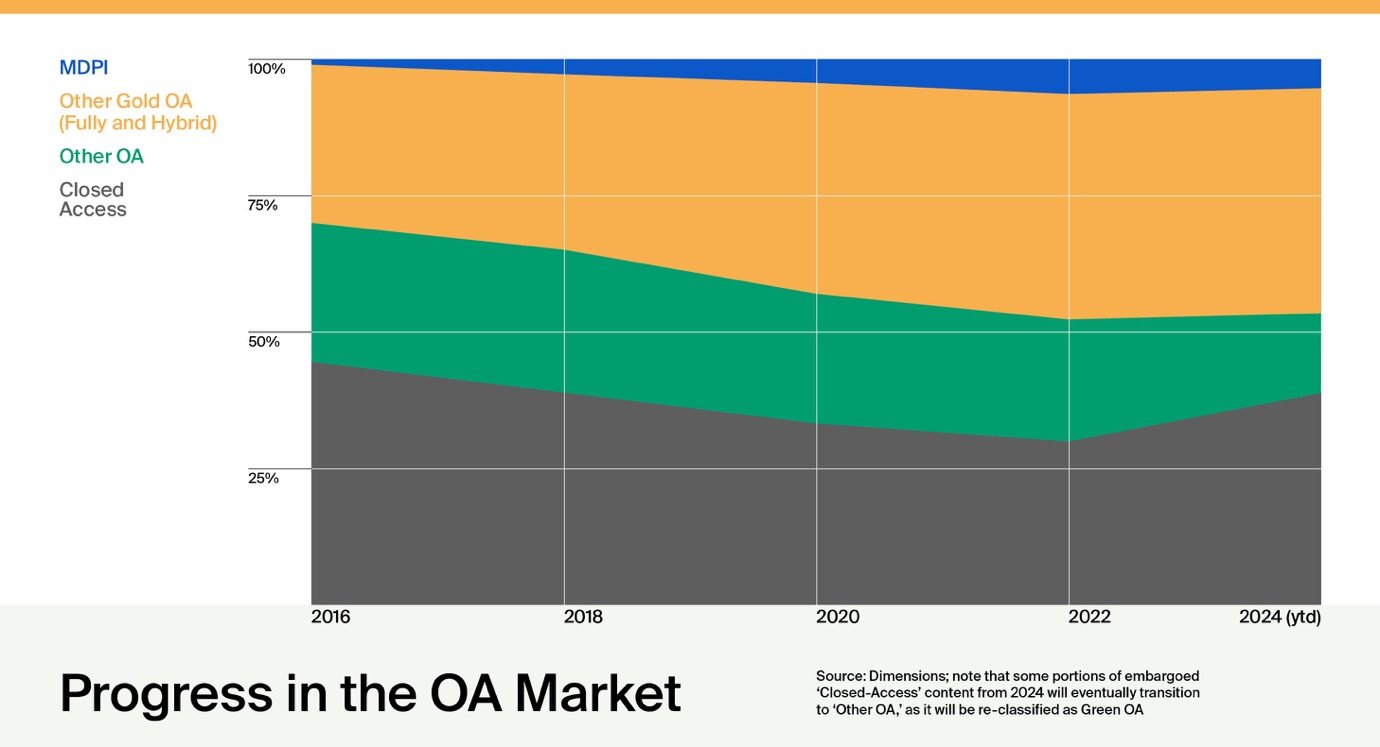
Benefits of Open Access and Open Research
- Accelerated Discoveries: OA speeds up scientific progress by allowing immediate access to findings, enabling researchers to build on each other’s work faster.
- Community-Led Innovation: Open research empowers communities to manage their own platforms, creating collaboration and shared knowledge.
- Increased Visibility: OA broadens the reach of your research, leading to greater recognition, collaboration, and impact.
- Cross-Disciplinary Connections: By removing financial and geographical barriers, OA unites diverse fields, sparking innovation across disciplines.

MDPI Singapore Celebrates Open Access Week

MDPI Singapore also hosted its first-ever OAW event at the Marina Bay Sands Convention Centre, bringing together academics, researchers, and students to discuss the future of open scholarship. Conversations focused on the potential of new publishing models, alternative funding strategies, and the importance of communicating research to wider audiences.
As OA evolves, MDPI remains a committed partner in advancing open science and creating a transparent, inclusive research environment. For a full recap of the week’s highlights and resources, visit our campaign page.

Impactful Research

MDPI Connection to Nobel-Winning Protein Research
David Baker, an American biochemist, and Demis Hassabis and John M. Jumper, two scientists from Google DeepMind, have been awarded the 2024 Nobel Prize in Chemistry for their groundbreaking advancements in better understanding the structure of proteins, the molecular engines of life’s processes.
One half of the prize was awarded to Professor David Baker from the University of Washington for his development of revolutionary protein design software enabling the creation of novel proteins for vaccines, nanomaterials, and sensors. Prof. Baker co-authored a 2016 paper in MDPI’s Toxins journal on protein-based therapeutics.
Meanwhile, DeepMind’s Demis Hassabis and John M. Jumper received recognition for AlphaFold, the AI model that predicts protein structures from amino acid sequences, fulfilling a long-held scientific dream.
“We congratulate this year’s Nobel laureates for their groundbreaking contributions to the study of life”
Nobel Prize Laureates Entrust MDPI with Their Research
As at October 2024, 45 Nobel laureates had contributed to more than 115 articles across
35 MDPI journals. The privilege of hosting the research of such contributors, who significantly influence the open access movement, resonates deeply with our editorial teams.
We are proud to list the names of Pierre Agostini, Hiroshi Amano, Werner Arber, Aaron Ciechanover, Robert H. Grubbs, Oliver Hart, Gerard ‘t Hooft, Michael Houghton, Harald zur Hausen, Katalin Karikó, Jean-Marie Lehn, Gérard Mourou, Ferid Murad, Shuji Nakamura, William Nordhaus, Kostya S. Novoselov, Giorgio Parisi, Charles M. Rice, Alvin E. Roth, Donna Strickland, K. Barry Sharpless, George F. Smoot, Anne L’Huillier, Drew Weissman, Kurt Wüthrich, Ada Yonath, Tomas Lindahl, Thomas C. Südhof, Stanley B. Prusiner, Roger Kornberg, Robert F. Engle, Richard J. Roberts, Ōmura Satoshi, Kenneth J. Arrow, John B. Goodenough, Jennifer Doudna, Hamilton Othanel Smith, Eric R. Kandel, Carlo Rubbia, Bernard Feringa, Barry J. Marshall, Anthony J. Leggett, Andrew Victor Schally, and David Baker.
Notable MRNA Published in Cells
On 7 October 2024, the 2024 Nobel Prize in Physiology or Medicine was jointly awarded to Victor Ambros and Gary Ruvkun for the discovery of microRNA and its role in post-transcriptional gene regulation.
MicroRNAs are proving to be fundamentally important for how organisms develop and function. Some interesting papers about microRNA research are published in the MDPI journal Cells. I invite you browse through the notable papers related to microRNA research in Cells.
Inside MDPI
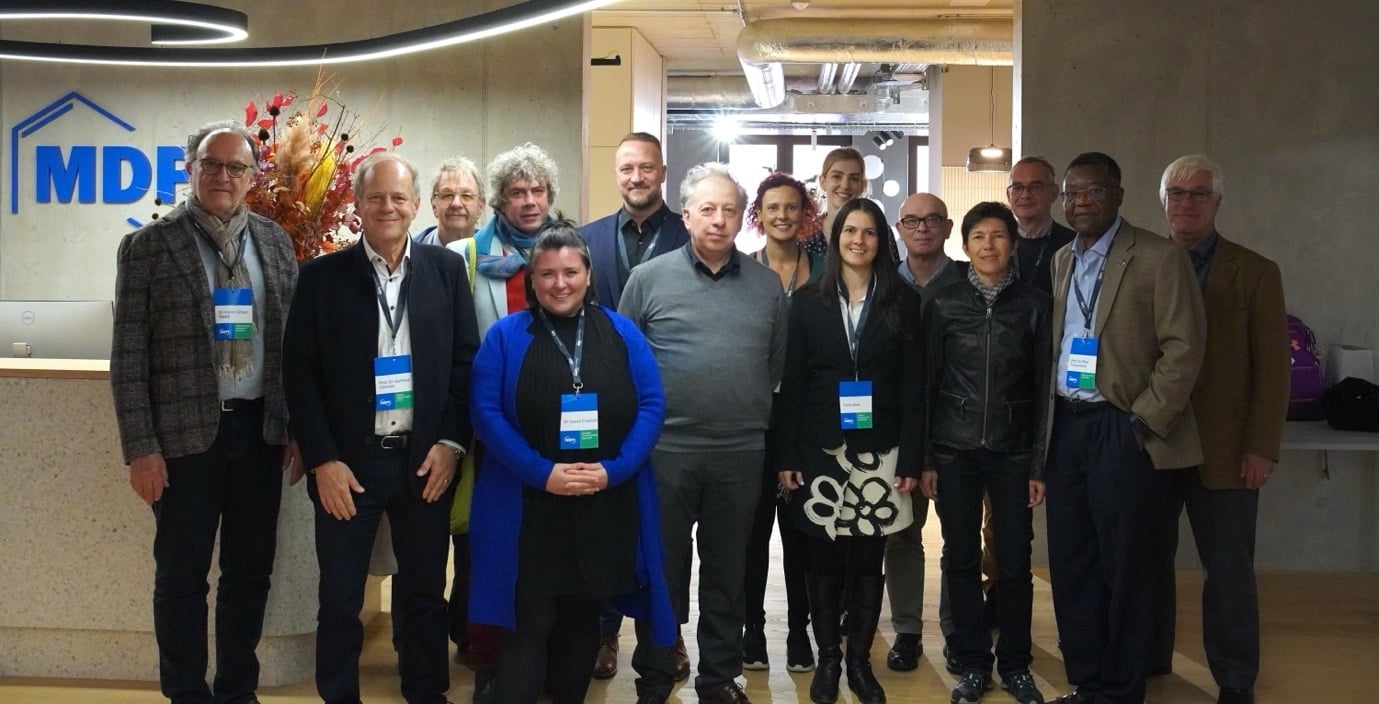
Basel Open Day
On 21 October, we held the Basel Open Day at our headquarters, welcoming a group of journal Editors-in-Chief (EiC) and Editorial Board Members (EBMs) for a full-day workshop. The event featured presentations and discussions on MDPI’s latest editorial updates, data integrity policies, society collaborations, and local market insights.
The following MDPI journals were represented during the visit: Physics, Journal of Personalized Medicine (JPM), Sci, Remote Sensing, Animals, Cells, Buildings, Histories, Sensors, and International Journal of Environmental Research and Public Health (IJERPH).
This was a great opportunity to showcase our new office space while gathering feedback from leading journal stakeholders. To get everyone on the same page, we took 60 minutes for round-table introductions, which helped set a collaborative tone and ground us in MDPI’s mission of disseminating open science.
“This was a great opportunity to gather feedback from leading journal stakeholders”
The general feedback from the day highlighted positive developments around our editorial and ethics policies, as well as areas for improvement, including flexibility regarding reviewer deadlines. There was a genuine appreciation and push for our ongoing efforts to share more about MDPI, including company updates and promoting high-quality research through our blog, announcements, and social media channels, which we have been growing and expanding.
Our Basel Open Day was a positive experience, bringing together key journal stakeholders and gathering insights to guide MDPI’s continued engagement with the academic community. We look forward to hosting future events of this kind and welcoming more scholars to our headquarters in Basel, Switzerland.
Coming Together for Science

ncRNA 2024 Conference in Basel
I am pleased to share that we held Non-coding RNA World 2024: Exploring Mechanisms, Designing Medicines (ICM 2024) in Basel, Switzerland this past 7–9 October.
The three-day event attracted just over 100 attendees, including two Chairs, 10 invited speakers and two keynotes from Prof. Mauro Giacca and Prof. Ling-Ling Chen. Of the presentations on site, there were 35 posters and 44 oral presentations.
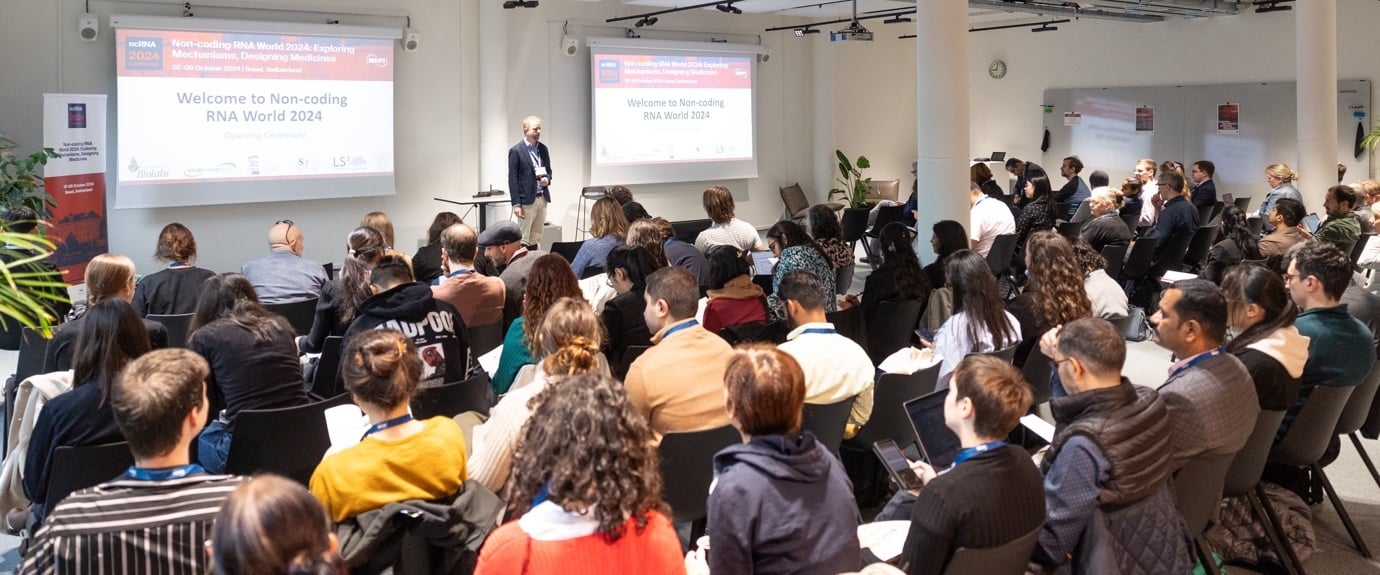
The overall feedback was positive, with people enjoying the intimate event and the unique activities offered, including a guided tour around Basel’s Old Town (a must-see for anyone visiting the city) and a memorable conference dinner.

It was cool to see the winners of the 2024 Nobel Prize in Physiology or Medicine announced during the conference days. This was exciting for attendees, as the winners discovered a new class of RNA molecules (miRNAs). As one invited speaker put it, “It's exciting to be among fellows when something that important for the field is announced.”
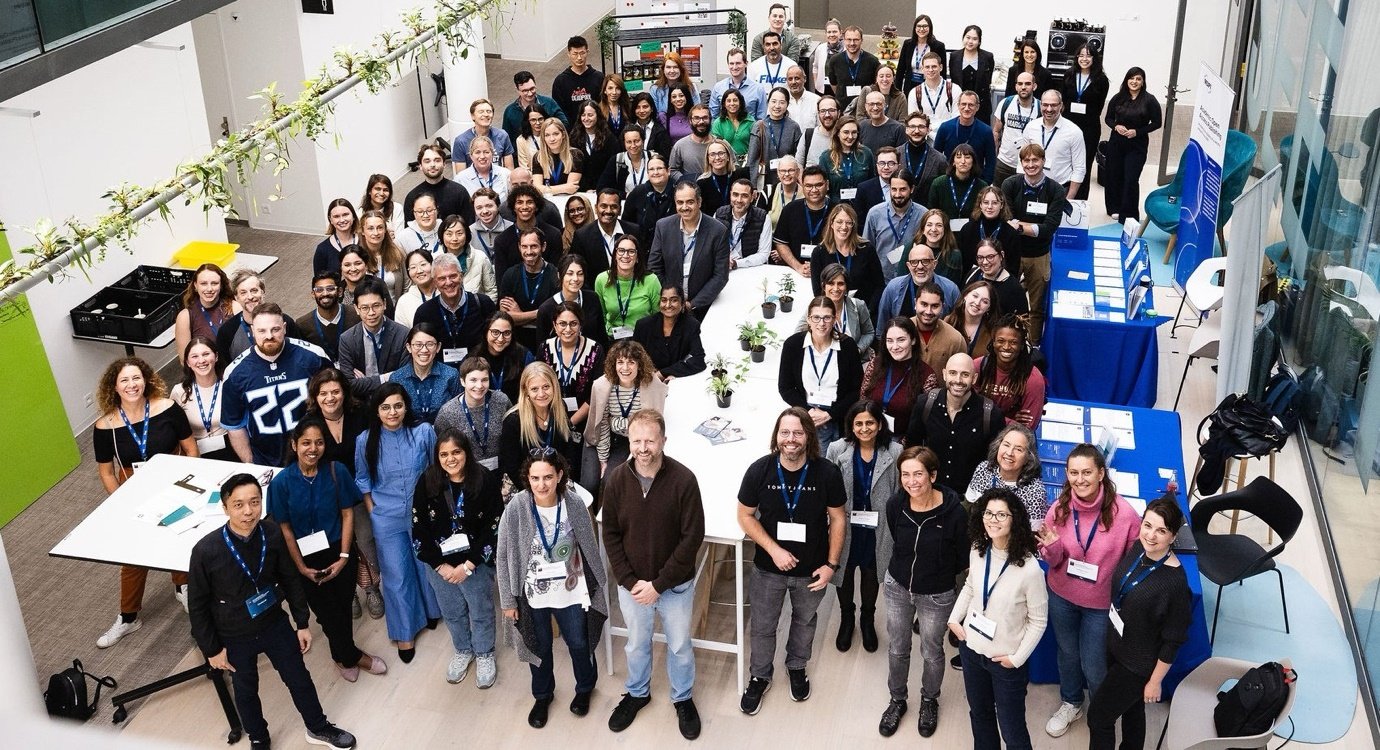
“It's exciting to be among fellows when something that important for the field is announced”
Every attendee receives a conference survey, and I’m always pleased to see a high percentage of ‘Very Satisfied’ responses when asked about ‘treatment from conference personnel’. Kudos to our conference team for meeting our attendees’ needs. These events are a great opportunity for us to reach new audiences, as 92% of the respondents had never been to an MDPI conference, so I am thrilled to see us connecting with a new demographic of your researchers in the RNA field.
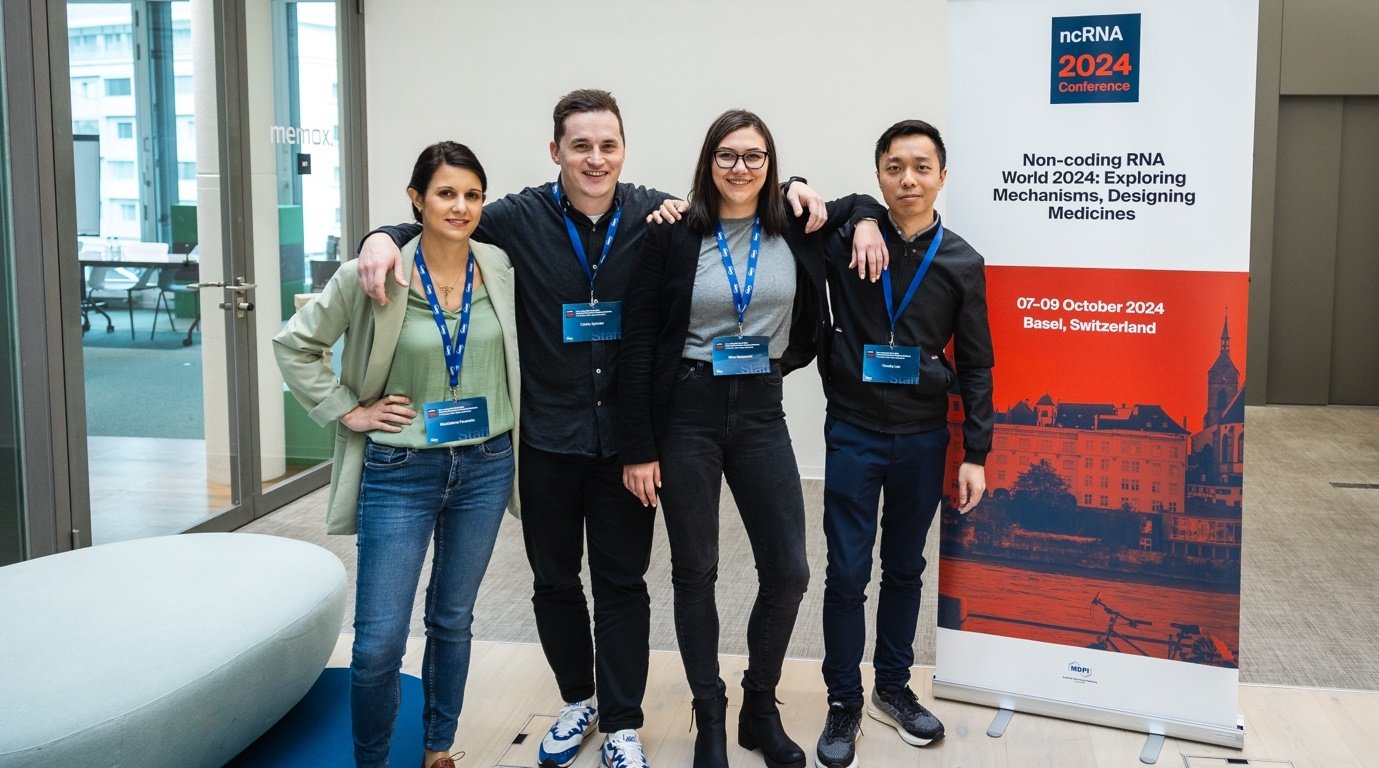
A special thank-you to our partnering societies The Epigenetics Society, The French Society of Genetics, LS2 / USGEB (Union of Swiss Societies for Experimental Biology), and The RNA Biology Group, as well as to our sponsors New England Biolabs and Arraystar for their support of the ncRNA 2024 conference. I am also pleased to report that we presented two awards, including the Best Presentation Award and two Best Poster Award, recognizing the contributions of our participants.
Upcoming In-Person Event

27–29 November 2024
Pharmaceuticals 2024 – Recent Advances in Pharmaceutical Sciences Towards a Healthy Life
Location: Barcelona, Spain
The discovery of new molecules, their properties, and actions to enhance human health and quality of life.
Find more upcoming MDPI events here.
Closing Thoughts

Beijing Graphene Forum 2024
I am pleased to share that we had a successful time at the Beijing Graphene Forum 2024, which drew around 1,000 attendees, including Konstantin Novoselov (2015 Nobel Prize in Physics) and other high-profile scholars in materials science and chemistry. It was a great opportunity to present MDPI on the big stage, with university presidents from institutions such as Peking University also in attendance.
I had the honour of awarding Prof. Zhongfan Liu, Chairman of the Chemical Science Committee, with a medal and presenting certificates to the members of the Chemical Science Committee; this is an important initiative to help expand MDPI’s journals and influence in China. These are highly respected scholars, and we enjoyed connecting with them over lunch as well.
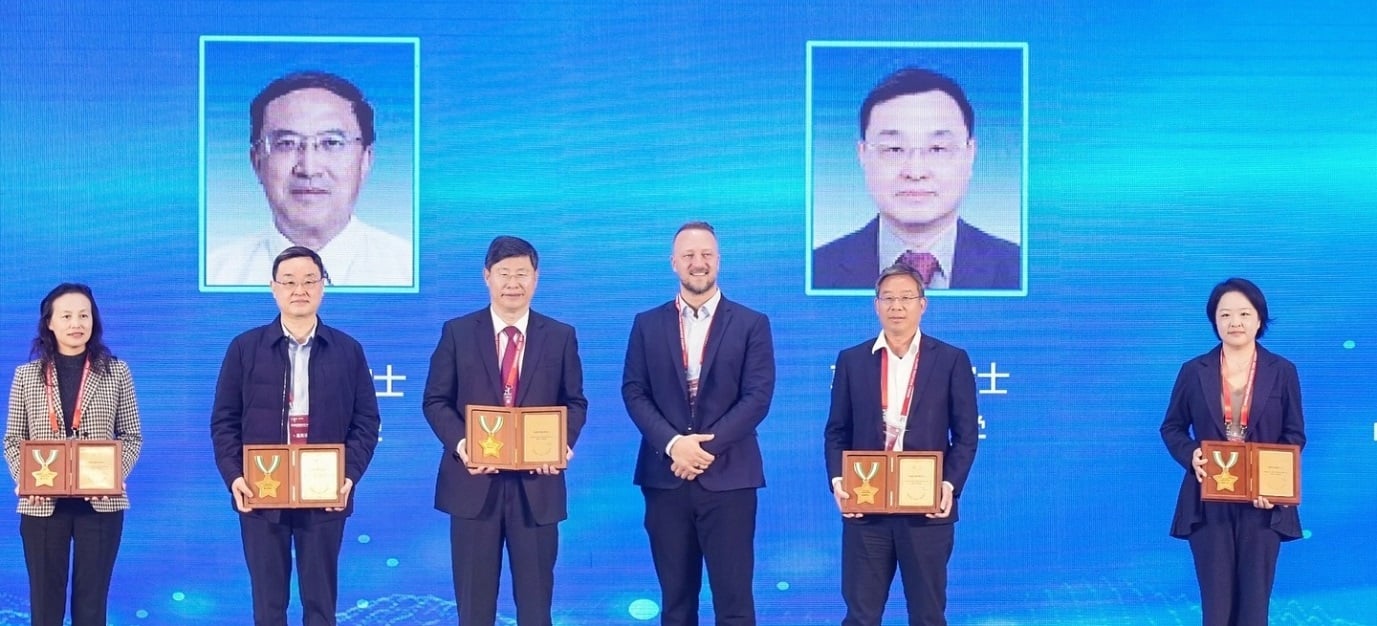
“This is an important initiative to help expand MDPI’s journals and influence in China”
I also had the chance to speak about MDPI and open access, giving a five-minute speech during the opening ceremony and a 20-minute presentation at the close. MDPI hosted a sub-forum where both academic scholars and MDPI members shared insights, and we engaged with attendees at our MDPI booth.
This was a great opportunity to spotlight MDPI as the main publishing partner for the event, and I was proud to represent us on stage. We also met with scholars to discuss topics such as their publishing needs and institutional policies, open access, impact journals, and IOAP.
Chief Executive Officer
MDPI AG











